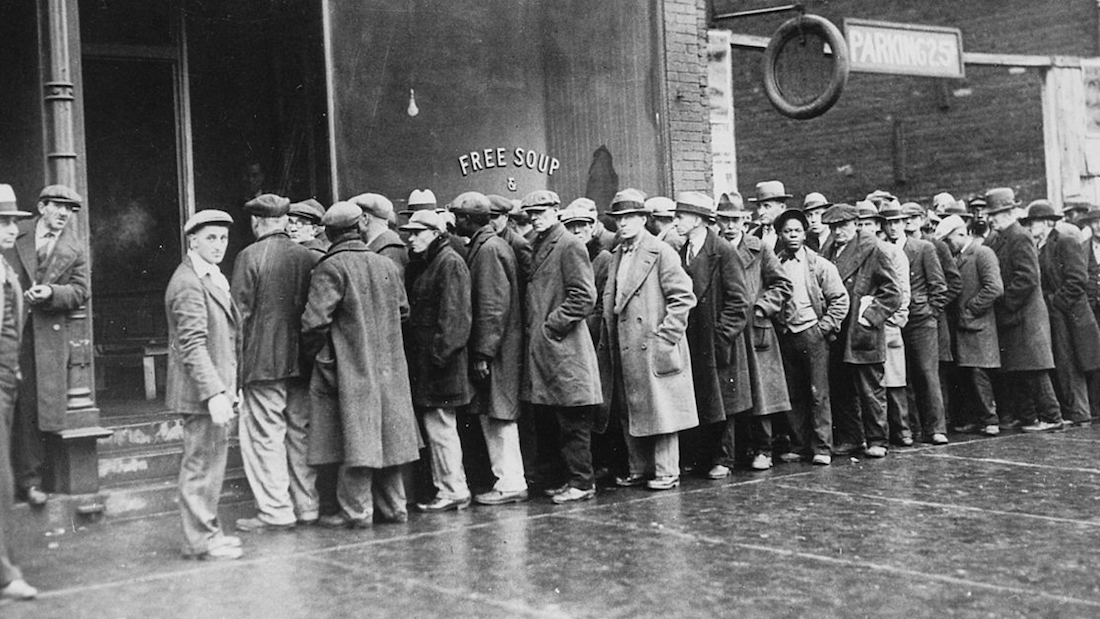The Great Recession has now earned the dubious right of being compared to the Great Depression. In the face of the most stimulative fiscal policy in our history, we have experienced the loss of over 7 million jobs, wiping out every job gained since the year 2000. From the moment the Obama administration came into office, there has been no net increases in full-time jobs, only in part-time jobs. This is contrary to all previous recessions. Employers are not recalling the workers they laid off from full time employment. Total payrolls today amount to 131 million, but this figure is lower than it was at the beginning of the year 2000, even though our population has grown by nearly 30 million.
Today, there are over 12.5 million measurable unemployed people in the United States with an unemployment rate of 8.1%. We now have more idle men and women than at any time since the Great Depression. Nearly seven people in the labor pool compete for every job opening. Hiring is now 17% lower than the lowest level in the 2001-02 down turn. One-fifth of all men of prime working age are not getting up and going to work. Equally disturbing is that the number of people unemployed for six months or longer grew 361,000 to 6.2 million. We face the specter that long term unemployment is becoming structural and not just cyclical, raising the risk that the jobless will lose their skills and become permanently unemployable.
The number 16% of the labor force includes 8.5 million part-timers who want full time work. This 16% does not take into account the discouraged workers who have left the labor force. The inescapable bottom line is an unprecedented slack in the U.S. labor market. Just to illustrate how insecure the labor movement is, there is nobody on strike in the United States today! Back in the 1970s, it was common in any given month to see as many as 30,000 workers on the picket line, and there were as many as 300 work stoppages at any given time.
The indirect numbers are also staggering. The number of people who have applied for permanent disability benefits has soared. Ten years ago, 5 million people were collecting federal disability payments; now the number is 8 million at a cost to taxpayers of approximately $120 billion dollars a year. The states today owe the federal insurance fund an astonishing $90 billion dollars to cover unemployment benefits.
Government statistics would seem to indicate that we have added jobs, but this is not because hiring has increased. In February 2009 there were 4.7 million separations – that is jobs lost. But by March of 2011 this had fallen to 3.8 million. In other words, the pace of layoffs has diminished, but that is not the same as more hiring. The unemployment numbers look better than they really are because of the aggressive layoffs in the early part of the recession and the reluctance of American business to rehire workers. In fact, the apparent improvement in job numbers has been made up of one part extra hiring and two parts reduced firing.
During past recessions, American firms still hired large numbers of workers as part of the continual cycle of replacing employees. Of the 150 million workers or job seekers in America, about one-third turn over in a typical year, leaving their old jobs to take new ones. Labor churn is characteristic of our economy. When the labor market creates 200,000 jobs, it has been because 5 million were hired and 4.8 million were separated, not just because there were 200,000 hires and no job losses. We are nowhere near the old normal. Throughout this fragile recovery, over 90% of the growth in output has come from productivity gains.
Clearly, the Great American Job Machine is breaking down and there is no roadside assistance on the horizon. There is a potential for an increase in interest rates; inventory levels remain high; new order bookings are at their lowest levels since September 2009 and home equity is suffering from housing prices that have declined at least 33%. If I were Mr. Obama, I would be watching the employment situation closely as the President and Congress will surely bear the political costs of a failure to work out a solution to fix the job shortage.








